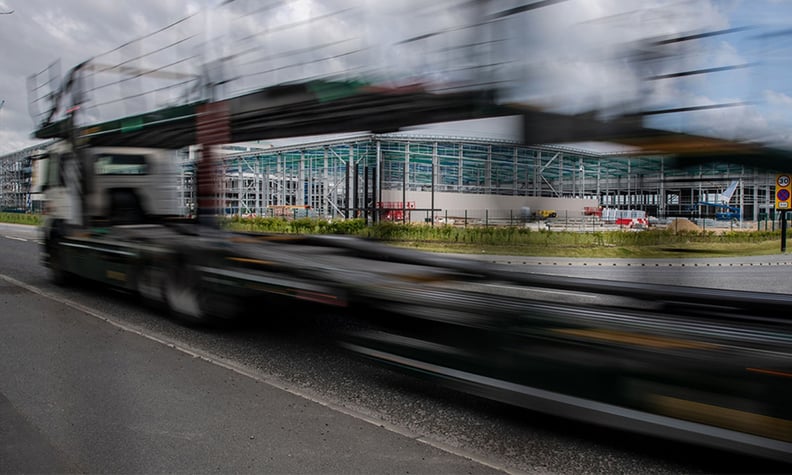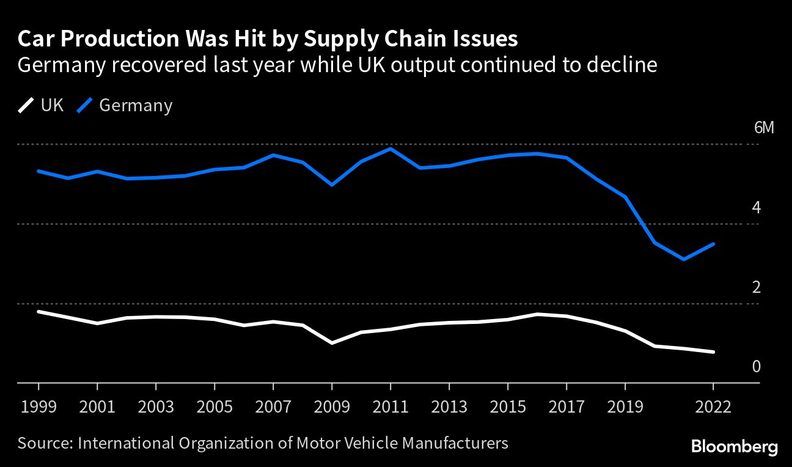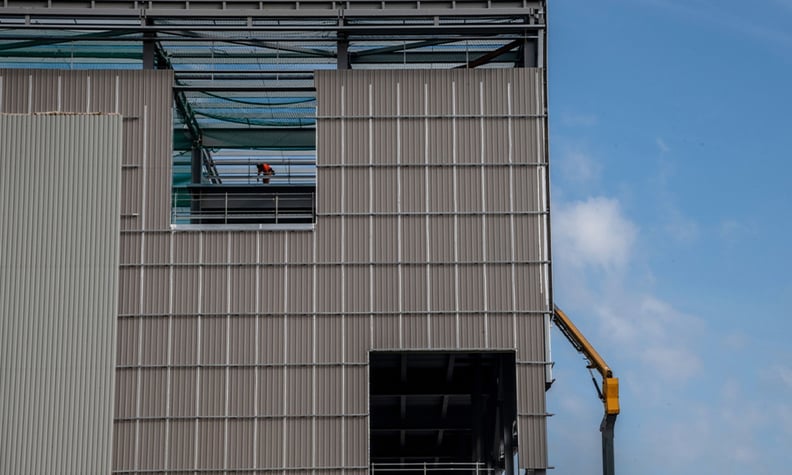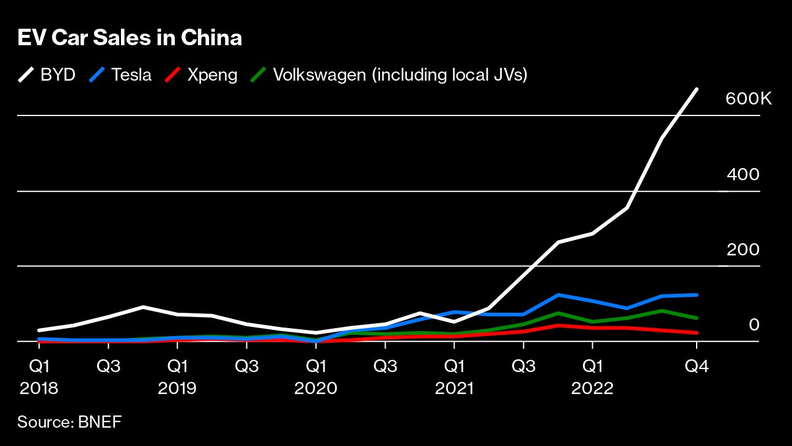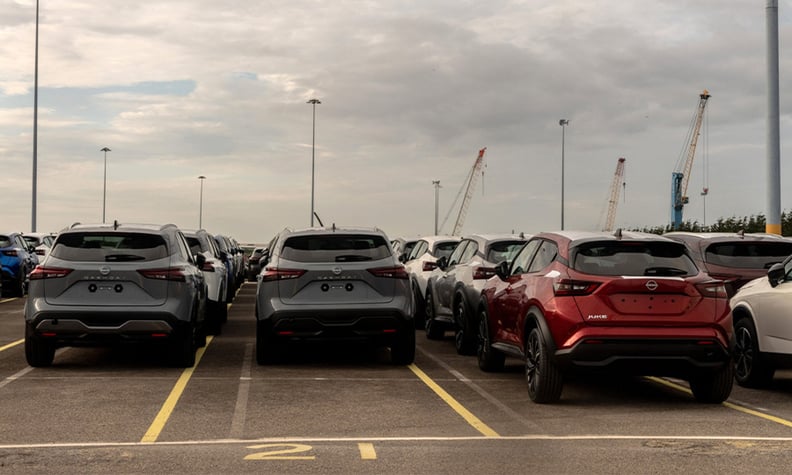Washington in northeast England likes to boast of its U.S. connections. George Washington's ancestral home lies at the heart of the old village; the family coat of arms greets visitors to the municipality; even the local golf club is named after the first U.S. president.
Yet for all the historic affinities, government actions in the U.S. capital now pose a threat to the economic lifeblood of its diminutive English namesake.
Up the road from Washington is the U.K.'s largest car plant, run by Nissan Motor. How long that can remain viable is unclear as a result of President Joe Biden's policies that are upending the auto industry from Germany to South Korea.
At the heart of Biden's new industrial policy sits the Inflation Reduction Act (IRA), which envisages $369 billion of government support for clean technologies including electric vehicles and the batteries that power them.
It's escalated a race for state-backed subsidies that risks leaving the U.K. adrift, struggling to match the kind of money on offer elsewhere to spur the transition, while exposing ongoing post-Brexit frictions over access to its main European Union market. Already the signs are ominous.
As of mid-March, European battery cell manufacturers had announced plans to add 581 gigawatt-hours (GWh) of production capacity on the continent, according to BloombergNEF, which researches the energy transition. Add in non-European battery makers, and the figure rises to some 1,100 GWh by 2026.
The U.K. equivalent so far is about 12 GWh at a single site: a so-called gigafactory that Nissan is building near Washington.
The government has offered subsidies for a further battery plant at a new Jaguar Land Rover site in southwest England and an announcement could be imminent.
Yet conversations with current and former British auto executives reveal a sense of alarm at how the U.K. government has dawdled in the face of overwhelming competition.
They point to a damaging series of errors and handicaps that have undermined the industry over years, from high energy costs and a supply chain that is overly dependent on China to a lack of the political and economic stability that companies need to make key business decisions.
